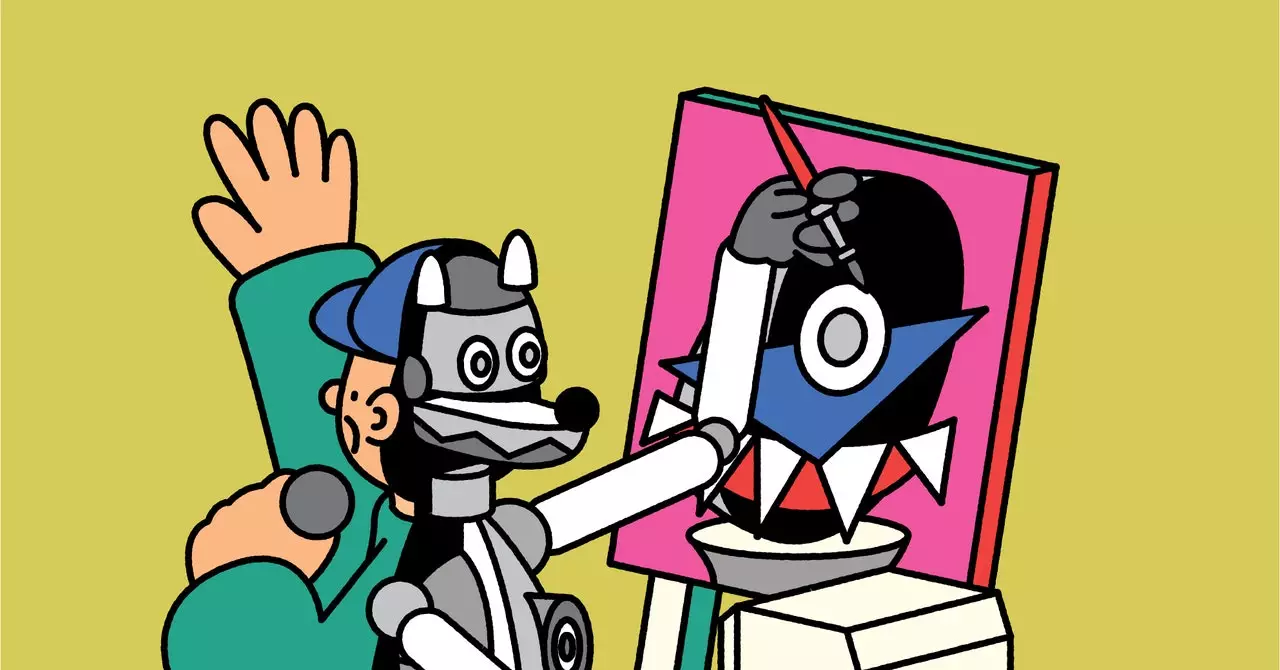The advent of artificial intelligence (AI) has stirred up a whirlwind of emotions and concerns, particularly regarding its potential to disrupt traditional creative processes. As AI-driven technology like ChatGPT emerges, the intersection of human artistry and machine-generated content becomes increasingly intriguing. This digital renaissance raises existential questions about the future of creative ventures, especially in fields deeply rooted in human experience and cultural expression, such as music.
The unease surrounding AI’s capabilities is justified, as many fear that machines will usurp roles that require human intuition and emotional investment. This anxiety is compounded by the tumultuous dynamic between the tech industry and regulatory frameworks, which often struggle to keep pace with innovation. Advocates of human-centric creativity express concern that AI could lead to a sterile environment devoid of authentic emotion, where algorithmic efficiency overshadows human ingenuity.
Yet, while these fears merit attention, it is crucial to pivot towards a more optimistic perspective. AI does not inherently suppress human creativity; instead, it poses new opportunities for artistic expression and cultural evolution. In exploring these possibilities, the world of hip-hop serves as a compelling case study—an art form that has long embraced innovation and experimentation.
Hip-hop stands as one of the most commercially successful music genres globally, illustrating the profound connection between creativity and technology. AI’s influence is already evident in the burgeoning landscape of music, where it is capable of producing derivative works and enhancing existing artistic expressions. AI-generated tracks, such as those that recently surfaced amid the rap conflict between artists like Drake and Kendrick Lamar, illustrate how seamlessly technology can blend with creative practice, often blurring the lines between human-made and machine-generated content.
This convergence raises intriguing questions about the nature of artistry and the future of music production. By 2025, we may witness a significant rise in AI-created content, particularly trending on social media platforms. As the digital era amplifies the voices of creators who favor novelty and provocation, the fusion of AI and hip-hop raises the stakes for originality and authenticity in art.
The trajectory of creativity in the age of AI could evolve along three primary paths. The first is the notion of “full surrender” to AI technologies. Embracing the notion that algorithms can construct vast amounts of music within a fraction of the time taken by humans invites a fresh examination of what it means to be a creator. Here, humans can continue to play a crucial role, curating and interpreting AI-generated music, much like contemporary influencers who elevate specific cultural artifacts.
The second pathway reflects a more collaborative stance, wherein artists merge human talent with AI innovation. This hybrid approach could lead to groundbreaking subgenres; artists may engage in playful reinterpretations or create entirely new sounds through AI-assisted remixes. Collaborations between human lyricists and AI could produce dynamic duos, offering unique listening experiences that leverage both computational creativity and human emotion.
Finally, a third facet of this evolution is an ironic resurgence—a renewed appreciation for traditional human-crafted art as AI-generated content proliferates. As the volume of machine-made creations proliferates, human-produced works may gain a newfound significance, elevating them beyond mere nostalgia. This could foster economic opportunities for artists by drawing attention to the artistry that laid the groundwork for current genres, and particularly spotlight hip-hop’s historical importance.
The anticipated flourishing of AI will spark a cultural reawakening, one that celebrates the origins and foundational figures of hip-hop. As the industry grapples with the sheer quantity of AI-generated music, listeners may begin to develop an appreciation for the artistry and authenticity of music made prior to the digital age. An emerging retro-tech movement could create a profitable market for the preservation of these analog relics, heralding a renaissance of styles that once defined music before the AI takeover.
This newfound recognition may not only benefit the original creators but may also elevate hip-hop’s status within the grand narrative of high art. As respect for foundational artists grows, so too does the likelihood of hip-hop achieving recognition in esteemed institutions, which, historically, have curated a narrow definition of art.
The relationship between human creativity and AI is poised for transformation. While uncertainty lingers, 2025 could represent a pivotal moment where the boundaries of artistic expression expand, allowing new harmful interpretations and augmentations to flourish. Rather than viewing AI as a threat to traditional art forms, we have the opportunity to embrace a synergistic future. Perhaps within this technological age lies a creative light, illuminating the path for hip-hop and myriad art forms to thrive amidst an evolving landscape. The possibilities reconfigured through collaboration and reinvention may ultimately redefine creativity itself, crafting a narrative where human ingenuity persists in the face of rapid technological advancement.


Leave a Reply